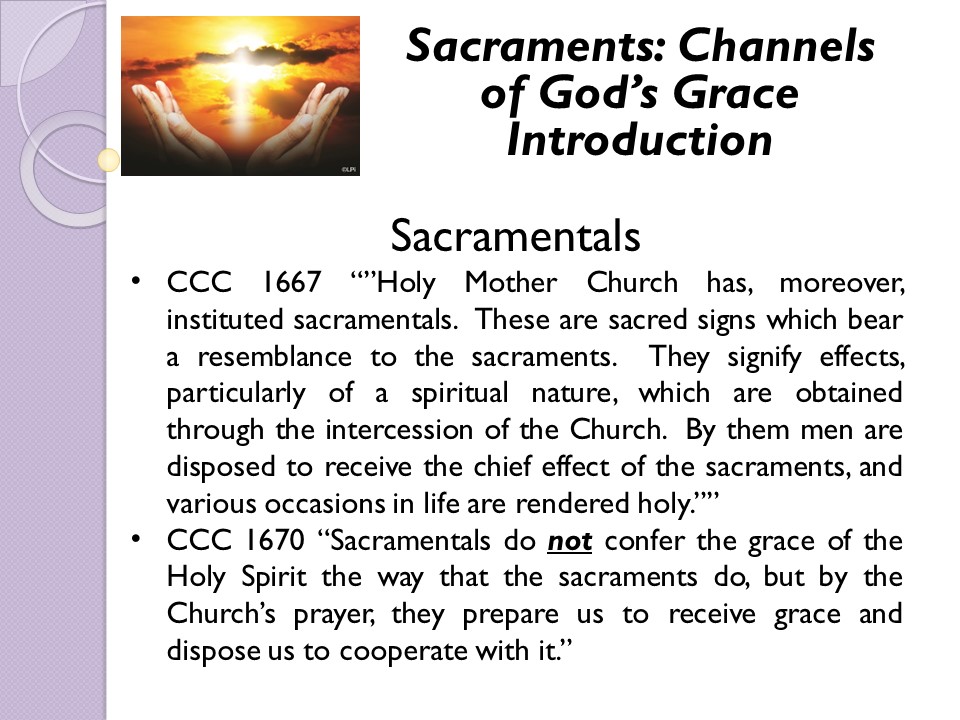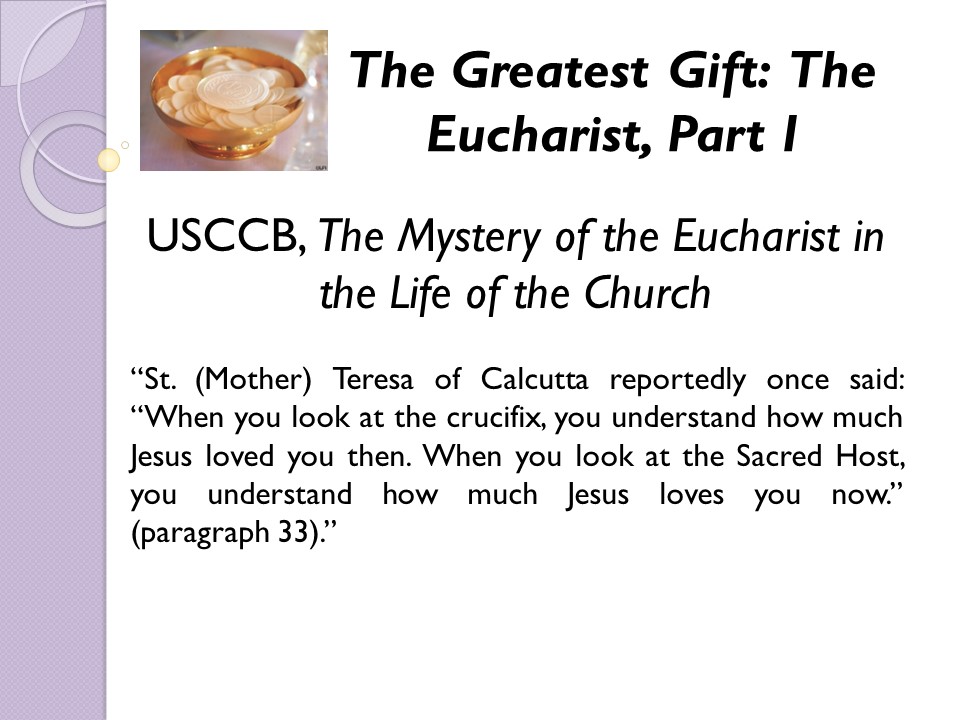Last week I wrote an article, “More on Fortune Telling and Reiki in the Bible”, as a direct follow-up to comments I made about fortune telling and Reiki in my homily on the 3rd Sunday in Ordinary Time.
Today I would like to expand out on related topics. I will begin by citing what the Catechism of the Catholic Church says about superstition in paragraph 2111, “Superstition is the deviation of religious freedom and of the practices this feeling imposes. It can even affect the worship we offer the true God, e.g. when one attributes an importance in some way magical to certain practices otherwise lawful or necessary. To attribute the efficacy of prayers or of sacramental signs to their mere external performance, apart from the interior dispositions that they demand, is to fall into superstition.”
I added the emphasis at the end because I see a concern in the way people look at the sacraments and sacramentals. For example, Baptism certainly makes one a child of God but it is not a magic potion that guarantees salvation. We should have no doubt that God offers grace to the one being baptized. Baptism points us to eternal life. Yet, I wonder about those who have their child baptized but we never see again in church. Do they see the waters of Baptism as a magic potion that guarantees one a place in Heaven no matter what? Baptism does indeed open a place in Heaven for us. But we must live out our lives in a way that flows from the grace we receive in Baptism. Our interior disposition must seek God in all things.
Likewise, the use of sacramentals might miss the interior disposition that one is called to have. Sacramentals are different than Sacraments.

Examples of sacramentals include rosaries, scapulars, and making the Sign of the Cross. I hear of people who wear a scapular as if it was a guarantee to salvation. The simple wearing of a scapular does not guarantee salvation. It is the interior disposition of faith that one has when they choose to wear the scapular that gives their life to God who saves them.
Now, I would like to expand this discussion of superstition to outside acceptable Catholic practices. As I mentioned in my previous article, “More on Fortune Telling and Reiki in the Bible”, there are people who turn to practices like Reiki seeking healing and/or relax from physical illnesses. Paragraph 2117 of the Catechism of the Catholic Church states that we must not turn to “occult powers” even for the sake of physical healing. Likewise, the same paragraph says “Wearing charms is also reprehensible.”
Here I would like to briefly discuss crystals. As I do so, I want to begin by saying that I don’t really know much about crystals. What I do know is that they are not in keeping with our Catholic faith. In his article, “Can Catholics use or wearing crystals for healing” (Aleteia website, 9/10/19, article available online at https://aleteia.org/2019/09/10/can-catholics-use-or-wear-crystals-for-healing/), Philip Kosloski writes, “First of all, in the medical and scientific community, crystals have not been found to possess any concrete healing properties.”
He does speak of the “placebo effect.” The mind is our powerful thing. If we think something will work, we convince ourselves it does. This might account for reports of healing associated with crystals. The atheist might say that prayers are not effective, that any healing attributed to prayers is merely a placebo effect. The thing is that there is proof of healing from prayer. We call them miracles. Yes, miracles still happen. Every time a person is canonized a saint, a proven miracle from the saint’s intercession is required. Those miracles are seriously investigated to make sure they are miracles.
Is there harm in using crystals? There can be real spiritual harm. This may come in because of a belief in crystals relies on the idea that there is “a “spiritual connection” between crystals and the “energy field” that surrounds a person” (Kosloski). Crystals are also “use to invoke spiritual powers outside of God” (Kosloski). Once again, we are dabbling with powers that we do not understand. Harm may come from those powers or harm can come in leading us away from true faith in God.
Kosloski points us to a Vatican document, “Jesus Christ, The Bearer of the Water of Life” where the Catholic Church rejects crystals. I would like to offer that document’s definition of pantheism from its “select glossary”, “the belief that everything is God, or, sometimes, that everything is in God and God is in everything (panentheism). Every element of the universe is divine, and the divinity is equally present in everything. There is no space in this view for God as a distinct being in the sense of classical theism.” This document from the Vatican centers on questions regarding “New Age Spirituality.” I might be talking about that in my next blog article along with “mindfulness.” I mention it here as I think pantheism might at least relate to the “spirituality” involved in crystals, Reiki, and the like.
I have spoken in this series of articles of “dabbling with powers we don’t understand.” Those “powers” include demons. Are we absolutely powerless against demons? No, well actually on our own we cannot defeat demons. However, we don’t have to defeat demons on our own. Who do we know who has driven out demons? Jesus Christ. Jesus drove out many demons. We call the driven out of demons “exorcisms.” The United States Conference of Catholic Bishops (USCCB) offers a document called “Exorcism” on its website at https://www.usccb.org/prayer-and-worship/sacraments-and-sacramentals/sacramentals-blessings/exorcism. There, the USCCB classifies exorcisms under the “category of sacramentals.”
Not only did Jesus perform exorcisms, He give his disciples the power to the same.
The USCCB divides exorcisms into two kinds. Simple exorcisms include those used for preparing for Baptism and RCIA. The USCCB also refers to prayers of exorcisms that can be used by lay people. This type of exorcism is not the exorcisms you see in movies. Those would be “major exorcisms” and can only be done by a priest approved by the local bishop to expel demons.
Simple exorcisms ask God to free us from evil. Major exorcisms are very serious and require “a thorough examination including medical, psychological, and psychiatric testing ” (USCCB, “Exorcisms”).
Unlike Sacraments, which are only offered to baptized Catholics, as a sacramental, it is possible for those in RCIA, as well as for both non-Catholic Christians, and even non-Christian believers “provided they have the proper disposition – meaning, they are sincere in their desire to be free of demonic influence” (USCCB, “Exorcisms”. cf. canon 1170 of the Code of Canon Law).
Exorcisms must be taken seriously. They are not just fun and games. Combating evil is a very serious matter. The USCCB’s document, “Exorcism” classifies prayers associated with exorcism into two types of formulas. “The deprecative formulas are exorcistic prayers, addressed to God, which request the liberation of the afflicted person. The imperative formulas are addressed directly to the inhabiting demonic spirit, commanding it to depart in the name of Jesus Christ” (my emphasis). Who else can defeat demons?
Well, once again I find what I have generated more words than I expected. I pray that all I have written is what the Holy Spirit has called me to write. I intended to begin discussing the Vatican document, “Jesus Christ, The Bearer of the Water of Life” and New Age spirituality in this article but it will have to wait.
I pray that these articles are helping you understand what is and isn’t in keeping with our Catholic faith and that these matters must be taken seriously.
Peace,
Fr. Jeff


